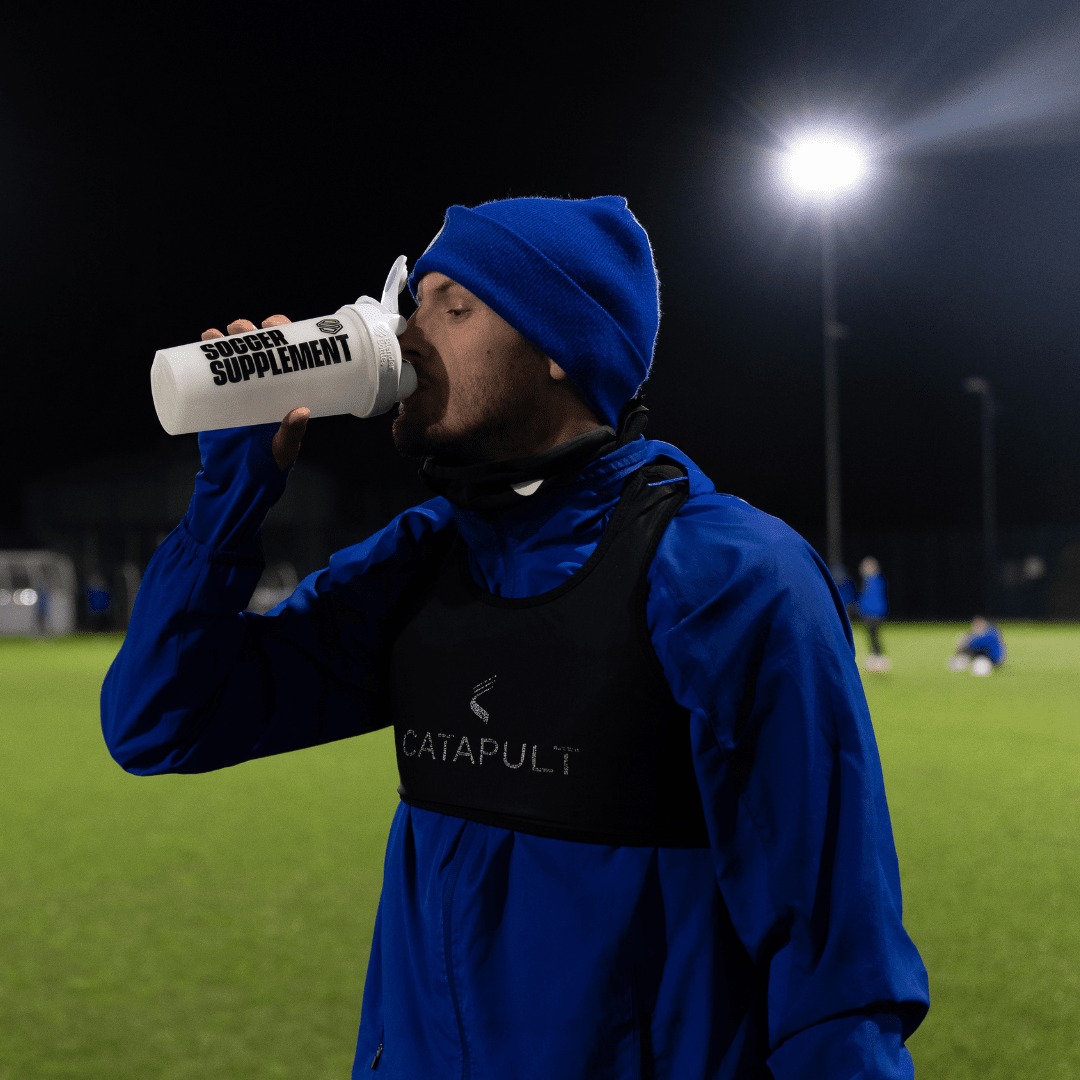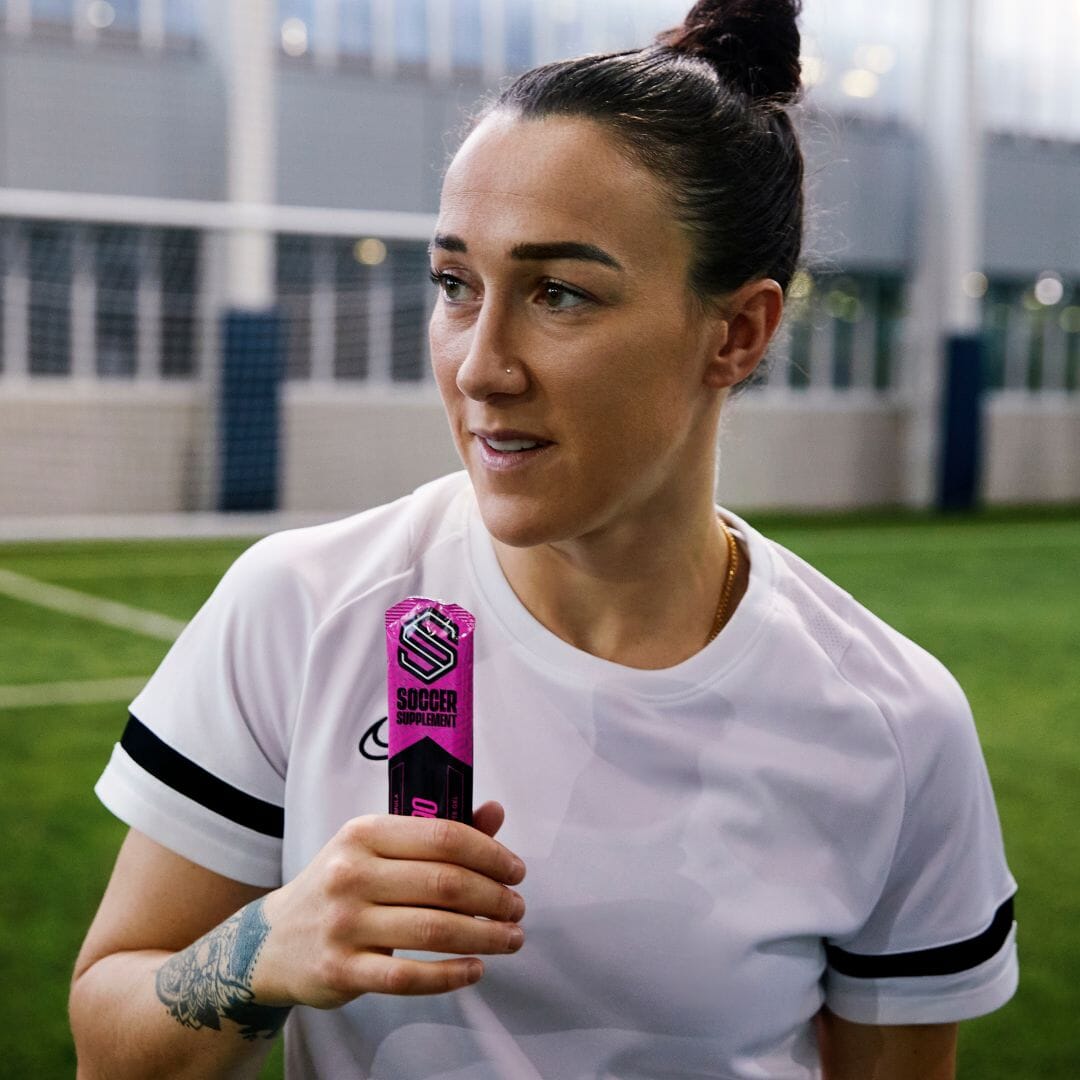WHAT IS CREATINE?
Occurring naturally in the body, 95% of the body’s creatine pool is within skeletal muscle. Creatine works via multiple mechanisms of action.
Its primary effect is an increase in phosphocreatine levels within the muscles, which acts as a pH buffer as well as a means to ‘recycle’ the body’s energy currency, ATP.1
Creatine monohydrate (CM) is the most extensively studied form of the supplement.
Other forms have hit the market (e.g. creatine pyruvate, tri-creatine citrate, Kre-alkalyn® and creatine ethyl-ester), claiming superiority over monohydrate. However, all such forms either perform equally well or worse than creatine monohydrate and carry a higher price tag.2,3
Traditional creatine dosing involves a loading phase of 20 g for 5-7 days followed by a maintenance phase of 2-5 g per day.
Lean mass increases of 1-2 kg have been seen in the first 4-28 days using this method.1 However, the same degree of intracellular phosphocreatine saturation as the high-dose loading phase has been seen with a linear dose of 2-3g/day for roughly 30 days.
THE BEST TYPE OF CREATINE IN FOOTBALL
While there are no published scientific reports of the effects of creatine supplementation on performance during an actual match, several articles have examined the effects of creatine on football-related performance tests, with outcomes being equivocal.4–8
Most notable of these investigations are those of Ostojic et al and Claudino et al, who demonstrated that creatine supplementation improved football-specific skill tests (dribble test, sprint-power test, and a vertical jump test) and prevented the decrement in lower-limb muscle power in elite footballers during pre-season progressive training, respectively.
Relating to the improvement of football-specific skills, a line of research has identified another possible mechanism whereby creatine supplementation can improve performance.
Indeed, Cook and colleagues demonstrated that an acute dose of creatine (~100mg per kg of body mass) was able to improve passing accuracy in a group of rugby players, both in sleep-deprived and non-sleep deprived states.
It is theorised that creatine uptake in the brain was responsible for the observed effects by increasing cognitive ability.9 T
hough these findings have yet to be replicated in footballers, it is plausible that these effects carry over to passing and other football skills.
As a final word, caution must be taken when weighing up the potential positive effects on performance with the weight gain (~1-2kg) associated with loading protocols.1
If you want to add creatine to your routine our 99.99% Ultra-Pure Creatine Monohydrate is a perfect choice.

THE BENEFITS OF CREATINE IN FOOTBALL
Given the demands of football training and match play, the aim of creatine supplementation would be to:
- Enhance repeated-sprinting ability
- Improve football-specific skills (e.g. dribbling; jumping; passing; shooting)
- Enhance cognitive ability (e.g. decision making; passing accuracy)
HOW TO USE CREATINE IN FOOTBALL
- For increases in power production, repeated sprinting ability, consume 3g of creatine monohydrate per day as part of a loading and maintenance protocol. There is no need to cycle this.
- For enhanced decision making, particularly if you’ve had a bad night’s sleep the evening before, consume 10g of creatine an hour before kick-off. 10g is the equivalent to two flat teaspoons of our creatine monohydrate.
If you want to add explosive power to your game check out our Ultra-Pure Creatine Monohydrate. Either mix Creatine with water in your protein shaker, or add it to your favourite Soccer Supplement protein shake.
Updated April 2022
References
1. Persky, A. M. & Brazeau, G. A. Clinical pharmacology of the dietary supplement creatine monohydrate. Pharmacol. Rev. 53, 161–76 (2001).
2. Jäger, R. et al. Comparison of new forms of creatine in raising plasma creatine levels. J. Int. Soc. Sports Nutr. 4, 17 (2007).
3. Jagim, A. R. et al. A buffered form of creatine does not promote greater changes in muscle creatine content, body composition, or training adaptations than creatine monohydrate. J. Int. Soc. Sports Nutr. 9, 43 (2012).
4. Redondo, D. R., Dowling, E. A., Graham, B. L., Almada, A. L. & Williams, M. H. The effect of oral creatine monohydrate supplementation on running velocity. Int. J. Sport Nutr. 6, 213–21 (1996).
5. Mujika, I., Padilla, S., Ibañez, J., Izquierdo, M. & Gorostiaga, E. Creatine supplementation and sprint performance in soccer players. Med. Sci. Sports Exerc. 32, 518–25 (2000).
6. Cox, G., Mujika, I., Tumilty, D. & Burke, L. Acute creatine supplementation and performance during a field test simulating match play in elite female soccer players. Int. J. Sport Nutr. Exerc. Metab. 12, 33–46 (2002).
7. Ostojic, S. M., Ostojic, J., Drid, P. & Vranes, M. Guanidinoacetic acid vs . creatine for improved brain and muscle creatine levels : a superiority pilot trial in healthy men. 1–10
8. Claudino, J. G. et al. Creatine monohydrate supplementation on lower-limb muscle power in Brazilian elite soccer players. J. Int. Soc. Sports Nutr. 11, 32 (2014).
9. Cook, C. J., Crewther, B. T., Kilduff, L. P., Drawer, S. & Gaviglio, C. M. Skill execution and sleep deprivation: effects of acute caffeine or creatine supplementation - a randomized placebo-controlled trial. J. Int. Soc. Sports Nutr. 8, 2 (2011).










